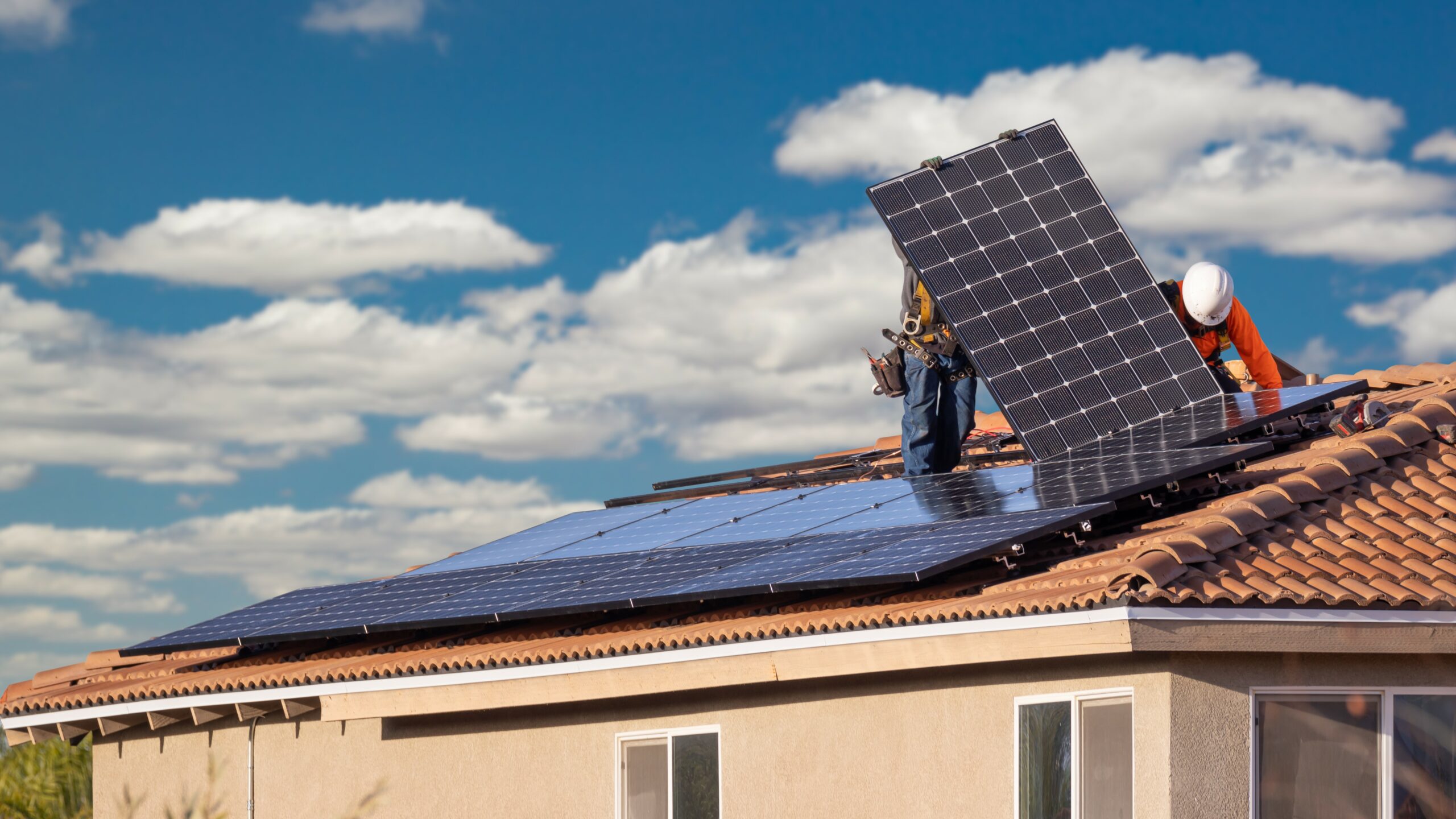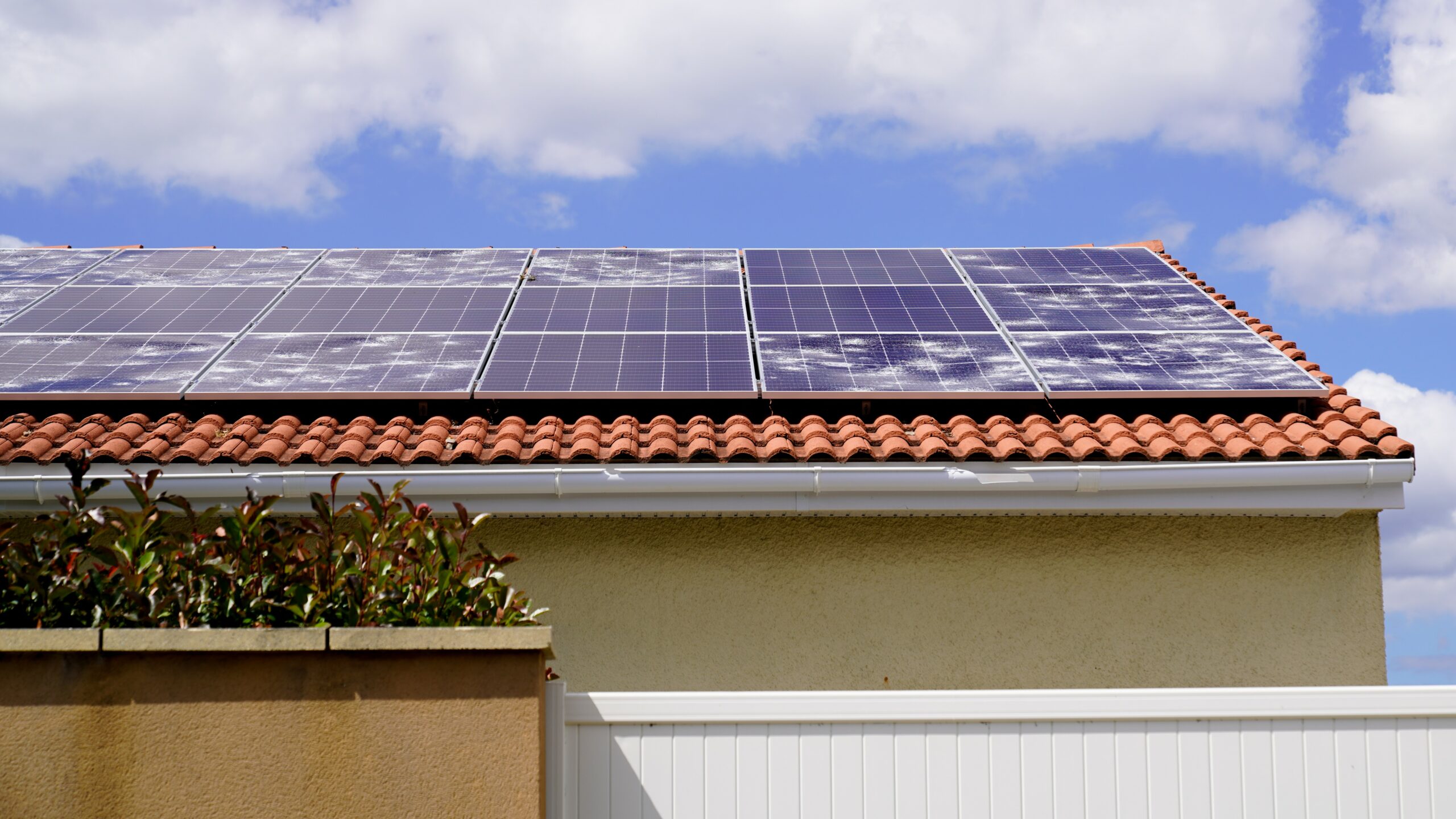The high cost of electricity has led many homeowners to consider adding solar panels to lower some of their monthly expenses. Panels are expensive and vulnerable and require insurance to prevent loss from damage or theft. Most insurance companies provide some form of cover, and it is essential that you know to what extent it will affect your policy.
Most home insurance companies provide comprehensive or partial solar panel cover. Hail, strong wind, and lightning are some of the factors often excluded by insurers and may require an additional policy or an amendment to a policy, which can result in a higher premium.
Panels are exposed to various elements, especially because they are mostly mounted on a roof and have no protection to prevent damage. Insurance is essential to protect your solar investment, and most companies have some form of restrictions that you must consider.
How Does Homeowners Insurance Cover Solar Panels?

With solar panels appearing on roofs all around the U.S. and the cost of installing a solar system so high, we must consider whether our insurance covers it. Unless specified, roof-mounted panels are generally covered under your homeowner's policy, although the coverage may be limited to policy restrictions.
Insurance companies vary in their coverage parameters concerning solar panels, and you must confirm to what extent your policy provides cover. Some exclude hail and wind damage, while others have more or no restrictions.
Some insurance companies allow for coverage as a rider or endorsement policy for a detached structure or panels mounted on the ground. Overall, every insurance company provides different coverage, which may be limited or nonexistent, and it is vital that you confirm it with them and not assume that you have coverage.
What Type of Damage is Covered?
Panels must have maximum sunlight to work effectively, making your home's roof the perfect place to fit them. Effective insurance coverage must consider the reasonable risks involved and provide cover accordingly. Your policy agreement will show the extent it covers panels and generally include:
Generally, most insurance companies do not cover certain risks like:
If your panels are on an outer building or structure like a shed, they may not be covered, and you must read through your policy document or contact your insurance company to clarify its coverage.
Do I Need Insurance Coverage If Solar Panels Are Leased?
Leasing panels are very popular, and many homeowners prefer this option to avoid hassles like maintenance, breakage, and other unforeseen problems. The insurance on leased panels differs, and there are three possibilities:
Watch Out for Wind and Hail Exclusions

The biggest cause of damage to solar panels is wind and hail, which is no surprise considering it is on your home's roof. Some insurers have hail and wind cover exclusions, and many homeowners only realize it once they claim and get repudiated.
Speak to your insurance company or check your policy to see if it covers wind and hail. If it is covered, it will be stipulated in the policy and usually has an additional cost. There are insurance companies that specialize in separate hail and wind damage insurance. These companies work with your standard home insurance and cover hail and wind damage if it is excluded from your policy.
Know Whether You Need a Separate Policy
Solar systems can save your electricity bill greatly, but they are expensive and vulnerable to theft, hail, windstorms, etc., requiring insurance to protect your investment. With its popularity growing all over the U.S., most insurers have considered their risk and made provisions to accommodate homeowners.
Because panels are a recent idea, most insurance companies are still working out the risks and to what limit to cover them. Almost all insurance companies provide cover to some extent, but you must inquire if there are limits.
When insurers do not provide comprehensive coverage, you can outsource the coverage of your solar panels to a third-party insurer specializing in solar insurance. There are various reasons why you may need a separate policy like:
Do Solar Panels Raise Homeowners Insurance Prices?
Your insurance premium is subject to the value and risk the insurance company carries, and any value added may increase. If anything happens, the insurer must replace the panels under the policy agreement and adjust the premium according to the risk.
Here are some reasons why your premium will increase if you add panels to your policy:
Do I Have to Tell My Insurance Company About Solar Panels?
Homeowners often forget to inform their insurance company of any improvements which may affect the risk. Any improvement, including solar panels, must be communicated to your insurer to give you peace of mind and simultaneously provide you with the extent of your cover.
If you inform your insurer that you have panels added to our home, you can evaluate if the cover is worth the premium increase and if the cover is adequate. Once you have informed your insurance company of the panels and are not happy with the cover or premium, you can exclude it from the cover and carry the risk yourself.
If the panels are leased from a company, you must inform your insurance unless the panels are covered under the lease agreement or have a separate policy that provides coverage.
Final Thoughts
Solar panels are expensive, and you must consider insuring them. Every insurance company has its requirements regarding panels, which are normally laid out within their policy rules. There are various factors to consider, like limits, exclusions, premiums, and the fact that another insurer will always give you the coverage you need.

